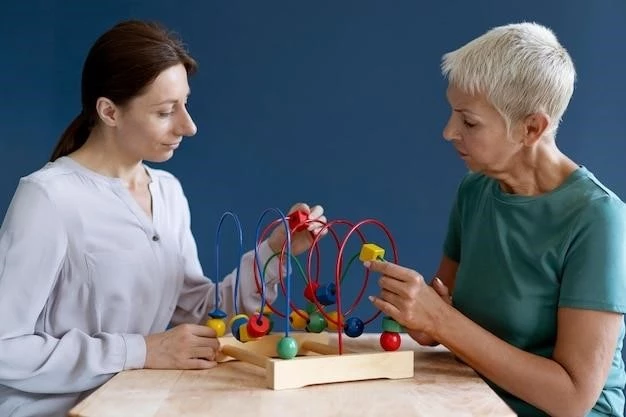Introduction
Progeria variant syndrome Ruvalcaba type is a rare genetic condition causing accelerated aging. Learn more about its clinical features and management.
Progeria variant syndrome Ruvalcaba type is a rare genetic disorder characterized by accelerated aging, affecting children at an early age. The condition arises from a spontaneous mutation in the LMNA gene, leading to a variety of symptoms affecting the skin, internal organs, and overall health. Although specific treatments are not yet available, management focuses on alleviating the various symptoms associated with the syndrome. It is important for patients and families to access resources for support and care to enhance their quality of life.
Overview of Progeria variant syndrome Ruvalcaba type
Progeria variant syndrome Ruvalcaba type is a rare genetic disorder causing premature aging, affecting children with distinctive features and challenges.
Distinctive Symptoms of Progeria variant syndrome Ruvalcaba type
Individuals with Progeria variant syndrome Ruvalcaba type exhibit unique symptoms such as premature aging effects on the skin, internal organs, and overall health; These distinct features require specialized management and care.
Comparison with Other Progeroid Conditions
Progeria variant syndrome Ruvalcaba type shares similarities with other progeroid conditions like Hutchinson-Gilford syndrome and Werner syndrome in terms of premature aging effects but presents unique challenges that require specialized care.
Genetics and Causes
Progeria variant syndrome Ruvalcaba type is attributed to a spontaneous mutation in the LMNA gene, triggering accelerated aging effects and distinct clinical manifestations.
Spontaneous Mutation of LMNA Gene
The spontaneous mutation of the LMNA gene is the primary cause of Progeria variant syndrome Ruvalcaba type, leading to accelerated aging and distinctive clinical manifestations. Understanding the genetic basis is crucial for diagnosis and potential future therapies.
Diagnosis
Diagnosing Progeria variant syndrome Ruvalcaba type involves specific methods to identify the unique characteristics associated with accelerated aging. Seek medical evaluation for accurate diagnosis.
Diagnostic Methods for Identifying Progeria variant syndrome Ruvalcaba type
The diagnosis of Progeria variant syndrome Ruvalcaba type involves specific methods such as clinical evaluation, genetic testing, and imaging studies to identify the unique characteristics associated with accelerated aging. Consult healthcare professionals for accurate diagnosis and management strategies.
Treatment
Specific treatment methods for Progeria variant syndrome Ruvalcaba type are not yet developed. Medical support focuses on managing symptoms like atherosclerosis, osteoporosis, cataracts, diabetes, and heart issues.
Management of Symptoms in Progeria variant syndrome Ruvalcaba type
The management of Progeria variant syndrome Ruvalcaba type focuses on alleviating symptoms such as skin changes, cardiovascular issues, and premature aging effects through a multidisciplinary approach. Accessing specialized care and support services can help improve the quality of life for individuals affected by this condition.

Prognosis
Progeria variant syndrome Ruvalcaba type has an unfavorable prognosis with a lifespan typically ranging from 7 to 28 years٫ emphasizing the importance of symptom management and support services.
Lifespan Expectancy and Average Survival Rates
The lifespan expectancy for individuals with Progeria variant syndrome Ruvalcaba type typically ranges from 7 to 28 years, with an average survival rate of around 12-13.5 years. It is essential to focus on symptom management and support to enhance the quality of life for those affected by the condition.
Research and Therapies
Ongoing studies seek potential treatments for Progeria variant syndrome Ruvalcaba type. Stay informed about research advancements in managing this rare genetic condition.
Ongoing Studies and Potential Treatment Approaches
Current research focuses on exploring potential treatments for Progeria variant syndrome Ruvalcaba type. Stay informed about ongoing studies and upcoming therapeutic strategies aimed at managing this rare genetic condition.

Support and Care
It is crucial for individuals with Progeria variant syndrome Ruvalcaba type and their families to access resources and support services for comprehensive care and assistance in managing this rare genetic condition.
Resources for Patients and Families affected by Progeria variant syndrome Ruvalcaba type
Families and individuals impacted by Progeria variant syndrome Ruvalcaba type can benefit from support groups, specialized healthcare providers, genetic counselors, and informational resources. Accessing these resources can provide valuable support, guidance, and understanding of this rare genetic condition.
Understanding the challenges of Progeria variant syndrome Ruvalcaba type is crucial in navigating its impact. Stay informed, seek support, and focus on managing symptoms effectively.
Summary of Key Points on Progeria variant syndrome Ruvalcaba type
Progeria variant syndrome Ruvalcaba type, caused by a spontaneous mutation in the LMNA gene, results in premature aging and distinctive clinical features, managed through symptom-focused care and ongoing research for potential treatments.
